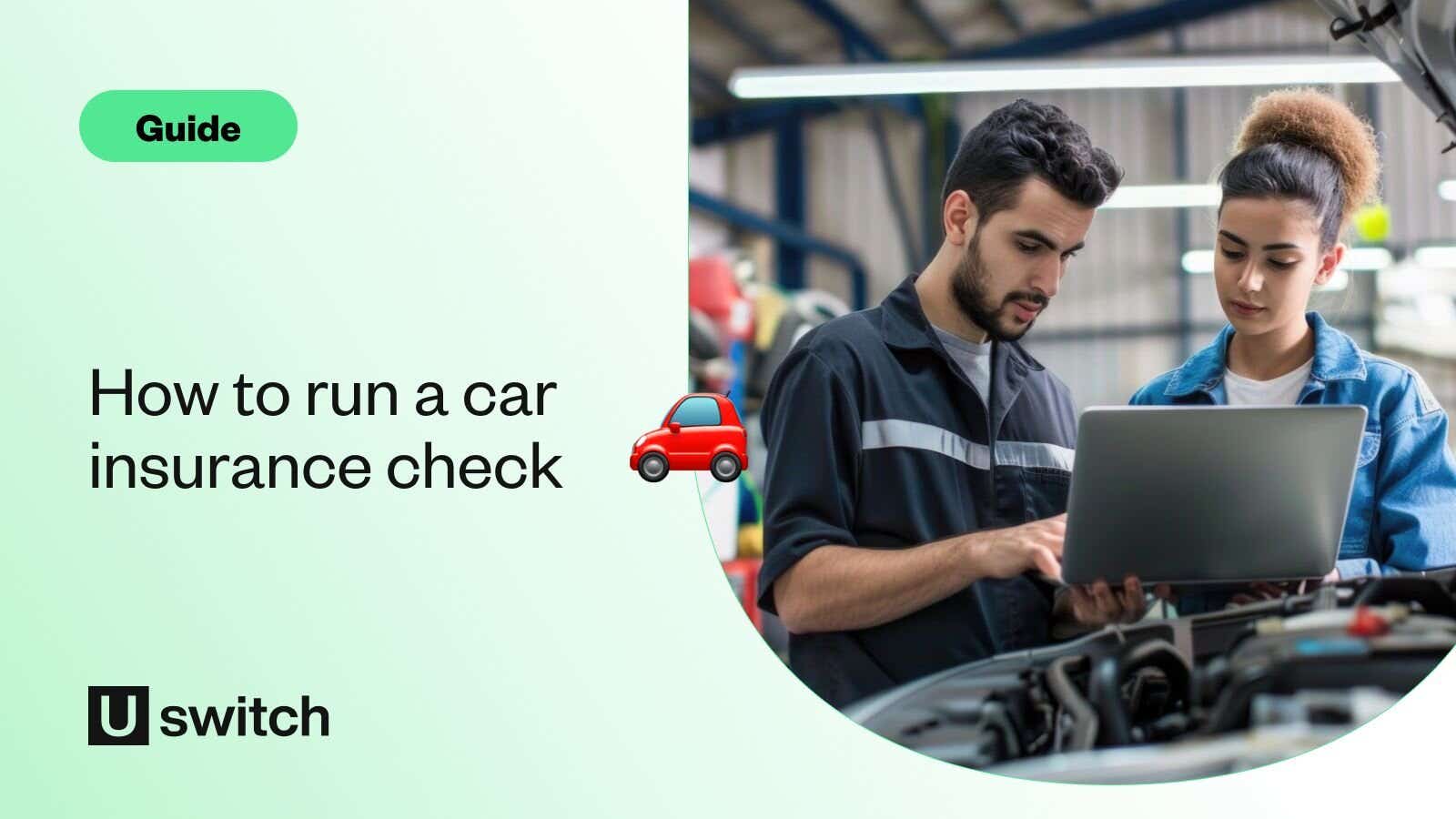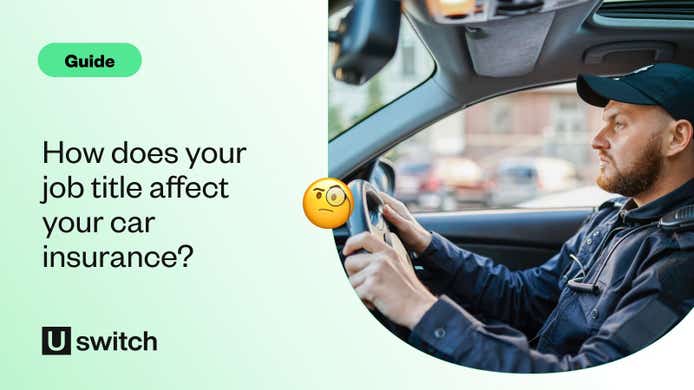How can I check if my car is insured?
The easiest way to find out if a car is insured is to run an insurance check online.
The Motor Insurance Database (MID) lets you check if your car is insured by entering the vehicle’s number plate and declaring that you're the owner or registered keeper of the car.
The MID is the only centralised database of motor insurance policy information for all insured vehicles. It's also used by the police to run car insurance checks.
When you check if a vehicle is insured, bear in mind all insurance companies must be members of the Motor Insurance Bureau (MIB). This means they are required to add all policies to the database. It’s updated regularly, but if you’ve just purchased an insurance policy your car may not appear on the database straight away, so give it time to catch up.
How do I find out who my car is insured with?
With most people holding more than one type of insurance policy, such as car, home and travel, it's easy to forget who your car is insured with.
Fortunately, if you can’t remember your insurance company there are several ways to find out:
- Check your bank statements: look for any payments to an insurance company around the time it’s due.
- Check your emails: run a search for ‘car insurance’ to see whether you have correspondence from your car insurer. It’s worth checking spam and trash folders too
- Retrieve a quote: if you’ve used a comparison site to run a quote, see if you can log back in and look it up
- Lodge a Subject Access Request: you can do this through the MIB, but you may be charged a fee.
What happens if my car is not insured?
If you are found to be driving without insurance, you could:
Get a fine
Six penalty points on your driving licence
In the worst case, you could end up going to court, face an unlimited fine and be disqualified from driving. The police are also allowed to seize, and in some cases, destroy a vehicle that is being driven uninsured.
Is your car not insured?
Get a range of car insurance quotes in minutes when you compare with Uswitch
How do I find out when my car insurance runs out?
Your car insurance documents will tell you when your policy runs out. Alternatively, if you know who your insurance provider is you can always contact them to ask.
Your insurer may also send out a reminder a month before your current insurance policy expires, so check your emails carefully in case there are any messages you’ve overlooked. Don’t forget to check your spam or trash folders too.
Does my car insurance renew automatically?
If you previously bought an insurance policy for your car and aren’t sure if you’re still covered, it’s possible that your policy has renewed automatically.
Most insurers will send you a renewal notice just before your 12-month insurance period ends. But if you don’t take action before the policy expires, your insurer may automatically renew your cover. If you think this has happened, contact your insurer and check your bank statements to see if any payments have been made in the past year.
If your policy has automatically renewed, make a note of the expiry date for future reference so that you can shop around for car insurance in good time.
Automatically renewing your policy is often expensive, so it pays to make sure you get the best quotes for car insurance in advance and avoid sorting your insurance at the last minute.
Some motorists have also been known to buy a new car insurance policy with a different provider without realising that their old policy has automatically renewed. This means you end up having two policies and paying two premiums. But as you can only ever claim on one policy, it doesn't mean you get double cover and two payouts.

What car insurance cover do I need?
Since continuous insurance enforcement (CIE) came into force in the UK in 2011, all cars must have a minimum of third party only insurance cover to be road-legal. This will cover you for injury or damage caused to others but won’t cover you for damage to your own vehicle.
You will still need insurance even if your vehicle is not being used, unless you declare it off-road with a Statutory Off-Road Notification (SORN). If you don’t have insurance or a SORN, you’re risking a fine and prosecution.
But it's important to note that you won’t be able to drive your car on public roads, including car parks, if you have declared it off-road. You'll need to keep it parked in a garage, on a driveway or on private property.
Do cars remain insured when they are sold?
If you haven't bought an insurance policy for your car, the chances are it's not insured.
Car insurance isn't transferable when cars are sold, so you or your employers – if you are driving a company car – are required to take out your own policy when buying a car.
Some car dealers will offer short-term or temporary insurance when you buy a new car — this will cover you for a limited period (usually up to a week) until you buy your own car insurance.
Am I still insured if my car is written off?
If your car’s written off, ownership is effectively transferred to your car insurance provider. You will then receive a pay-out equivalent to the value of the vehicle if it were sold in its pre-accident condition. This is known as a settlement.
If you want to drive another car, even on a temporary basis, you would need to check with your insurance company.
If your car has reached the end of its useful life and you want to get rid of it you can arrange for a scrap merchant to collect it. The moment they load it on to their lorry, you can cancel your insurance.
Can I drive an uninsured car with my insurance?
All cars driven on a UK road need to be covered by insurance, with a minimum of third party cover. Always check the car insurance status of any vehicle you intend to drive.
Who can drive my car?
If your vehicle is insured, it doesn’t mean anyone can drive it.
Insurance policies cover drivers, not cars, so before letting someone loose behind the steering wheel, check that your policy allows other motorists with comprehensive cover in their own right to drive your car. If not, you’ll need to add them to your policy as a named driver.
How do I check if my car is taxed and has a valid MOT?
Even if you take the steps to check if your car is insured, you should also make sure you have road tax and a valid MOT, which you can do by using the government’s free car check service.
Aside from telling you whether the car has been taxed, and when the tax expires, you’ll also find out when its next MOT is due.
Get a car insurance quote
See a range of car insurance quotes in just a few minutes when you compare with Uswitch
FAQs
Why is my car not showing as insured?
Your car may not show up as insured straightaway as the Motor Insurance Database may not have had time to update. If it is not showing up within seven days, contact your insurer. It also makes sense to check you've given your insurance company the correct details - simple mistakes with your registration number are easy to make.
Why is it important to check your car insurance?
It's important to check your car insurance because it is illegal to drive a car in the UK unless it has a minimum of third-party insurance.
If you are caught driving without insurance you risk a fine and six points on your licence. If your case goes to court you could even be disqualified from driving and get an unlimited fine.
Can I check if someone else's car is insured?
It may be possible to check if someone else's car is insured using the Motor Insurance Database's 'Other Vehicle Look Up' service.
The service is intended to be used after accidents and a nominal fee of £10 will be charged.
Can you pause your car insurance?
There are number of reasons you might want to pause your car insurance if you aren't going to be using it for a while.
Whether or not your insurance can be paused will ultimately come down to your insurance company, so it's important to check. You may have to cancel it and repurchase cover further down the line.
It's also important to note car insurance is legal requirement, so that means if you want to stop your car insurance you'll need to declare it off road with a Statutory Off Road Notice (SORN).



